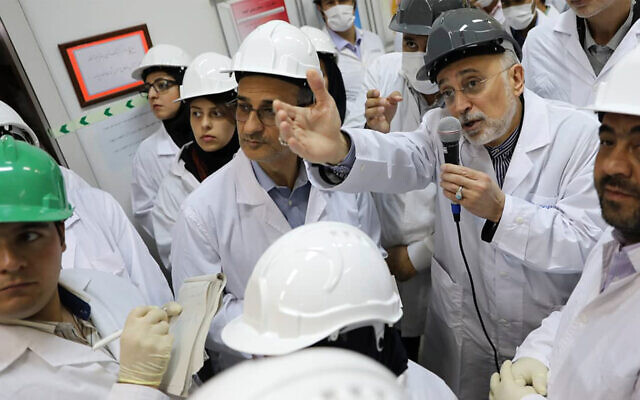



The Times of Israel is liveblogging Saturday’s events as they happen.
Iran’s UN mission: ‘Hoping our response won’t be to detriment of potential ceasefire’
Asked whether Iran will delay its highly anticipated retaliation for the killing of Hamas leader Ismail Haniyeh until after the next round of ceasefire-hostage talks between Israel and Hamas called for August 15, Iran’s mission to the United Nations says it hopes that Tehran’s response “will be timed and conducted in a manner not to the detriment of the potential ceasefire.”
“Our priority is to establish a lasting ceasefire in Gaza; any agreement accepted by Hamas will also be recognized by us,” the UN mission says in a statement.
“The Israeli regime has violated our national security and sovereignty through its recent act of terrorism. We have the legitimate right to self-defense — a matter totally unrelated to the Gaza ceasefire,” the statement continues. “However, we hope that our response will be timed and conducted in a manner not to the detriment of the potential ceasefire.”
“Direct and intermediary official channels to exchange messages have always existed between Iran and the United States, the details of which both parties prefer to remain untold.”
UK urges Israel ‘to reconsider’ revocation of Norwegian diplomats’ status
UK’s Foreign, Commonwealth and Development Office (FCDO) says it’s deeply concerned by Israel’s decision to revoke the diplomatic status of eight Norwegian diplomats dealing with the Palestinian Authority.
“Norway has long played a unique and valued role in supporting peace for Israelis and Palestinians. We urge Israel to reconsider,” the FCDO says in a statement.
US thinks Iranian nuclear research paving easier path to bomb — reports

American spies believe Iran is better positioned to restart its nuclear weapons program thanks to research activities it has conducted, The Wall Street Journal reports.
According to the report, the US intelligence community does not think that Iran has yet made a decision to break out for a bomb, but its path to one could be eased should it decide to pull the trigger.
In a report to Congress last month, Director of National Intelligence Avril Haines warned that Iran has “undertaken activities that better position it to produce a nuclear device, if it chooses to do so,” the Journal reports.
While officials do not think the research will shorten the time needed to breakout to a bomb, it “could shrink the knowledge gap Tehran faces in mastering the ability to build a weapon,” a US official is quoted saying. The Journal notes that in the past, study of such topics would have led US analysts to conclude that a bomb was being pursued, though not in this case.
The assessment also notes that the topic of nuclear weapons has become less taboo in Iranian society, according to the report.
